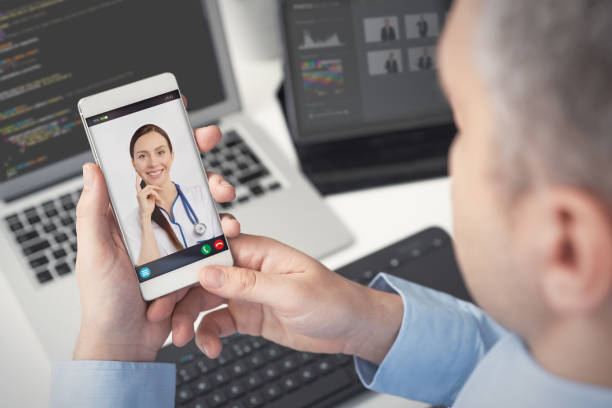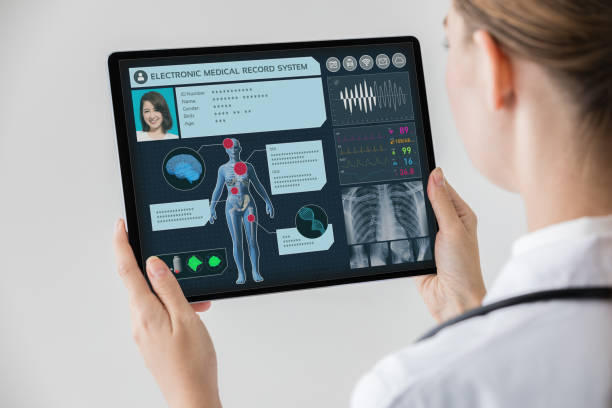Book Appointment Now

Patient Engagement through Health Information Technology
In today’s healthcare landscape, Patient Engagement through Health Information Technology has become a critical factor in improving patient outcomes and fostering better communication between patients and healthcare providers. With the increasing reliance on technology, tools such as patient portals, mobile health apps, and telemedicine are not only making healthcare more accessible but also empowering patients to take an active role in their own healthcare management. This article explores how these innovations in health technology are revolutionizing the way patients engage with their health, enhance their wellness, and collaborate with their care teams.
Get a custom paper help about patient engagement through health information technology
Order Custom Nursing Paper
The Role of Patient Portals in Enhancing Patient Engagement
Patient portals are one of the most transformative tools in the realm of Patient Engagement through Health Information Technology. These online platforms allow patients to access their personal health records, view test results, schedule appointments, and communicate with their healthcare providers securely. By providing patients with around-the-clock access to their health data, patient portals are empowering them to take a more active role in managing their healthcare.
Key Benefits of Patient Portals:
- 24/7 access to health data and test results.
- Secure communication with healthcare providers.
- Convenient appointment scheduling and prescription refills.
- Proactive health management, empowering patients to make informed decisions.
By offering seamless access to medical information and facilitating better communication, patient portals contribute to more personalized care and a stronger patient-provider relationship.
Mobile Health Apps: Revolutionizing Self-Management
Another key innovation in Patient Engagement through Health Information Technology is the proliferation of mobile health apps. These apps have become indispensable for individuals seeking to monitor and manage their health on a daily basis. By offering features like medication reminders, fitness tracking, and even virtual consultations, mobile health apps provide patients with a personalized approach to healthcare management.
Key Features of Mobile Health Apps:
- Medication reminders to improve adherence to prescribed treatment plans.
- Fitness tracking to monitor daily activity and encourage healthy habits.
- Virtual consultations with healthcare providers for timely advice.
- Chronic condition management, allowing patients to monitor conditions like diabetes and hypertension.
The ability to track daily activity, monitor chronic conditions, and receive real-time feedback through mobile devices allows patients to stay informed about their health at all times. This continuous interaction with health data fosters a proactive approach to healthcare, where patients can make adjustments to their lifestyle and treatment plans based on insights provided by these apps.
Telemedicine: Making Healthcare Accessible Anywhere
Telemedicine is a game-changer in Patient Engagement through Health Information Technology. It allows patients to connect with healthcare providers remotely, eliminating the barriers of distance and convenience. Whether through video calls, online consultations, or virtual follow-ups, telemedicine makes it possible for patients to receive medical advice without leaving their homes.
Benefits of Telemedicine for Patients:
- Remote consultations, eliminating the need for travel, especially for patients in rural areas.
- Convenient care, allowing patients to receive advice and follow-ups from home.
- Increased access to healthcare, particularly for underserved populations.
- Reduced in-person visits, saving time for both patients and healthcare providers.
For patients in rural or underserved areas, telemedicine is particularly valuable, as it provides them with access to healthcare providers that may be otherwise difficult to reach. Additionally, telemedicine reduces the need for in-person visits, saving time for both patients and healthcare providers, while also ensuring that patients can receive timely care. With the integration of telehealth services into mainstream healthcare systems, patient engagement has expanded to include virtual consultations, follow-ups, and ongoing care management.
The Power of Digital Health Tools for Personalized Care
Incorporating digital health solutions into patient care is another significant factor in Patient Engagement through Health Information Technology. Wearable devices such as fitness trackers, smartwatches, and other health-monitoring tools allow patients to track a wide range of health metrics like steps, sleep patterns, and even blood oxygen levels in real time. These devices can be synced with mobile apps or patient portals, providing patients and their healthcare providers with valuable insights into their health.
Examples of Digital Health Tools:
- Fitness trackers that monitor physical activity and steps.
- Smartwatches that track heart rate, sleep quality, and overall wellness.
- Wearable glucose monitors for patients with diabetes to track blood sugar levels.
- Blood pressure cuffs integrated with mobile apps for real-time monitoring.
For example, smartwatches that monitor heart rate and activity levels can help patients manage chronic conditions like heart disease by alerting them to abnormal readings. This data-driven approach encourages patients to engage in healthy behaviors and maintain communication with their healthcare providers, ensuring more effective care plans and timely interventions.
The Future of Patient Engagement: Integrating AI and Wearables
The future of Patient Engagement through Health Information Technology lies in the integration of artificial intelligence (AI) and wearable devices. AI-powered systems can analyze vast amounts of patient data, identifying patterns that may not be immediately obvious. These insights can be used to predict potential health issues and recommend personalized care plans.
Emerging Technologies Enhancing Patient Engagement:
- AI-powered health tools to predict patient health trends and recommend treatments.
- Advanced wearables to provide continuous health monitoring and real-time feedback.
- Smart devices for personalized health interventions, such as medication reminders and activity tracking.
- Predictive analytics to detect early signs of health issues and prevent complications.
Furthermore, the continued development of wearables will further enhance patient engagement by providing continuous monitoring and real-time data sharing. For example, AI can analyze data from wearable devices to predict flare-ups of chronic conditions or the onset of illness, allowing patients to take preventative actions and seek medical help earlier, preventing more serious health issues down the line.
Patient Engagement through Health Information Technology is transforming the way patients interact with their healthcare. Through the use of patient portals, mobile health apps, and telemedicine, patients are now empowered to take control of their health and make informed decisions in partnership with their healthcare providers. These technologies are not only improving access to care but also encouraging a more proactive approach to health management. As advancements in artificial intelligence (AI) and wearable devices continue to shape the future of healthcare, patients will have even more tools at their disposal to manage their health and collaborate with their care teams. The ongoing integration of these technologies into everyday healthcare is setting the stage for a more engaged, informed, and healthier population.
Rekated:
“Discover how Patient Engagement through Health Information Technology empowers patients with patient portals, mobile health apps, and telemedicine.”
Also read: The Evolution of Health Information Technology







